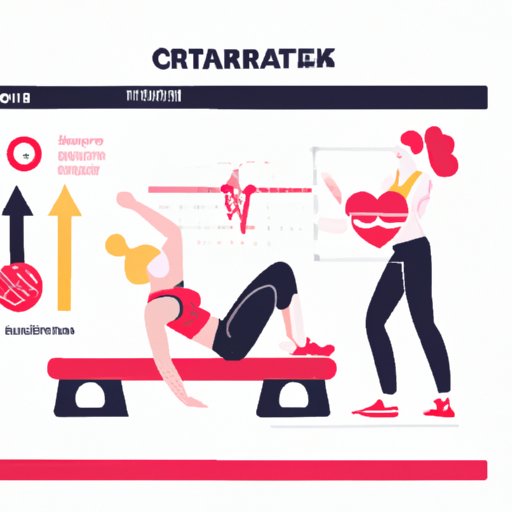Introduction
Cardiorespiratory fitness is a measure of your body’s ability to take in oxygen and use it efficiently to fuel your muscles during physical activity. It is an important indicator of overall health and can be improved through regular exercise and a healthy diet. In this article, we will explore what cardiorespiratory fitness is, how it impacts your health, and the types of exercises and dietary modifications that can help you increase your cardiorespiratory fitness.

How Cardiorespiratory Fitness Impacts Your Health
Cardiorespiratory fitness is closely linked to both physical and mental health. Regular exercise, which is essential for improving cardiorespiratory fitness, has been shown to reduce the risk of developing chronic diseases such as heart disease, diabetes, and certain types of cancer. Exercise also helps to boost mood and reduce stress, leading to improved mental health.
What Is Cardiorespiratory Fitness and Why Is It Important?
Cardiorespiratory fitness refers to the capacity of the heart, lungs, and circulatory system to supply oxygen to the working muscles during physical activity. It is measured by several tests, including the VO2 max test, which measures the maximum amount of oxygen the body can consume per minute. Higher levels of cardiorespiratory fitness are associated with better overall health and improved quality of life.
Regular exercise is essential for improving cardiorespiratory fitness. Aerobic exercise, such as running, swimming, cycling, and brisk walking, increases the efficiency of the heart and lungs, allowing them to deliver more oxygen to the muscles. Resistance training, such as weight lifting, is also beneficial for improving cardiorespiratory fitness. Core strengthening exercises, such as planks, sit-ups, and crunches, can also help to improve cardiorespiratory fitness.

The Role of Diet in Cardiorespiratory Fitness
Eating a balanced diet is essential for maintaining good health and improving cardiorespiratory fitness. Eating plenty of fruits, vegetables, whole grains, lean proteins, and healthy fats can help provide the energy needed to fuel physical activity. Additionally, certain foods, such as fatty fish, dark chocolate, green tea, and nuts, have been shown to improve cardiorespiratory fitness.
Understanding Cardiorespiratory Fitness Tests
Cardiorespiratory fitness tests are used to measure the efficiency of the heart, lungs, and circulatory system. Tests include the VO2 max test, which measures the maximum amount of oxygen the body can consume per minute, and the Cooper Test, which measures how far a person can run in 12 minutes. Preparing for a fitness test involves following a specific training program, eating a balanced diet, and getting adequate rest.
Cardiorespiratory Fitness: A Guide for Beginners
If you’re just starting out on your journey to improve your cardiorespiratory fitness, there are several steps you can take to get started. First, set realistic goals and create a plan to achieve them. Next, find activities that you enjoy and make time for regular exercise. Finally, seek support and motivation from friends and family and stay positive throughout your journey.
Conclusion
Cardiorespiratory fitness is an important measure of health. Regular exercise and a balanced diet can help to improve cardiorespiratory fitness, which can lead to improved physical and mental health. If you’re just starting out, it’s important to set realistic goals, find activities that you enjoy, and seek support and motivation from friends and family.
(Note: Is this article not meeting your expectations? Do you have knowledge or insights to share? Unlock new opportunities and expand your reach by joining our authors team. Click Registration to join us and share your expertise with our readers.)
